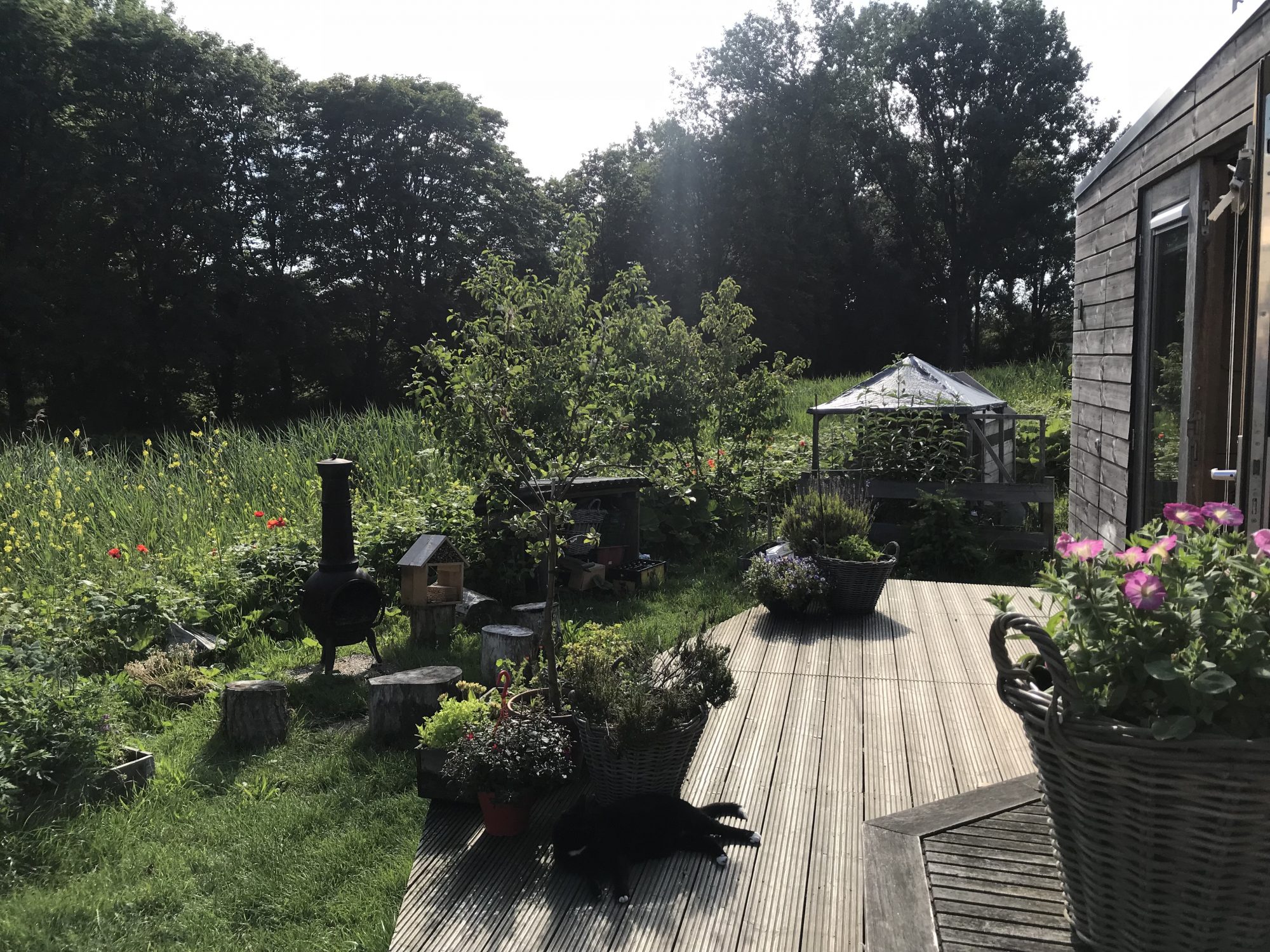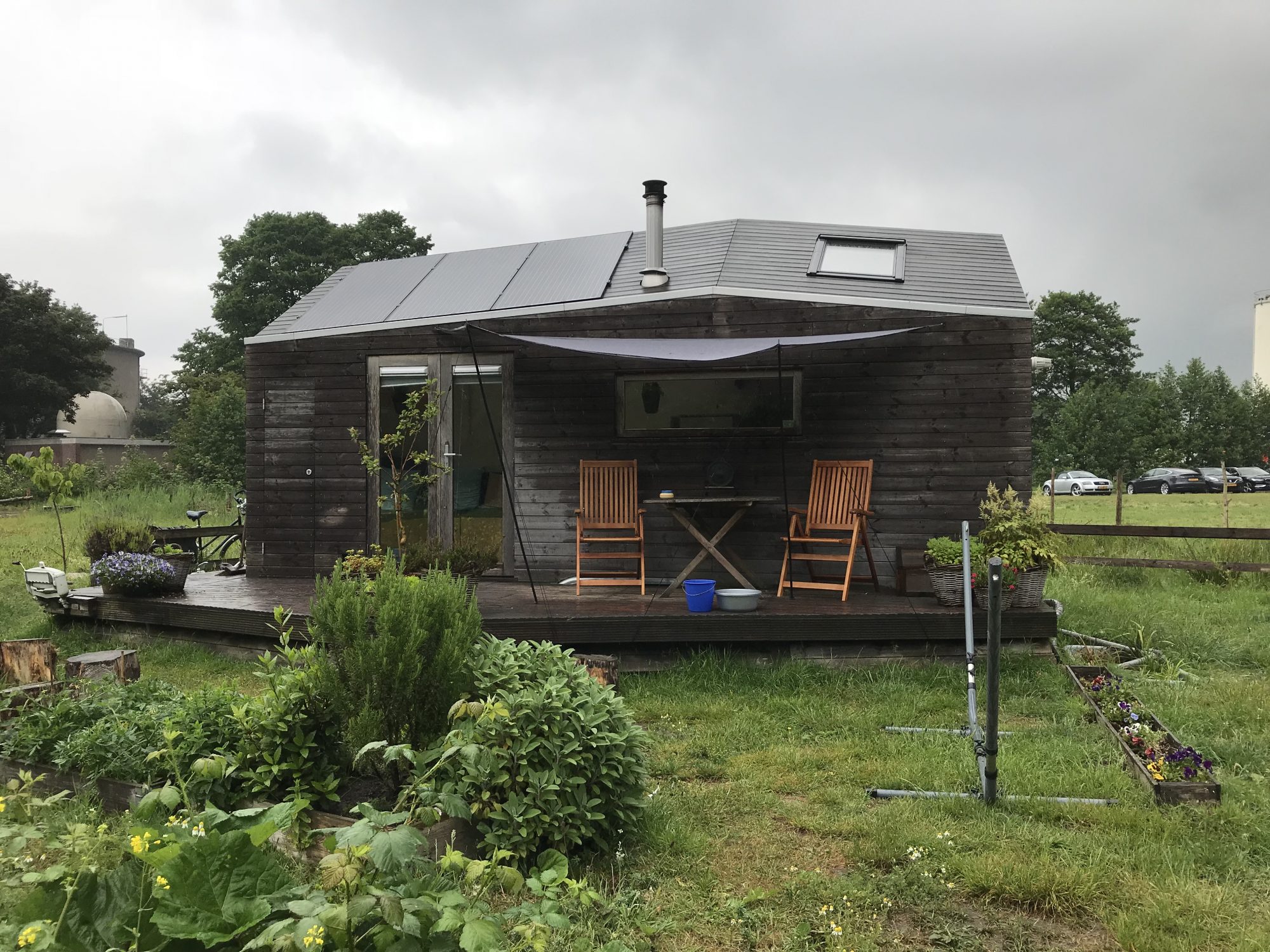In my Tiny House I only use the rainwater that falls on my roof — as long as it rains, that is. During long dry spells such as we’re experiencing right now, I fall back on jerry cans that I fill at my friends’ homes. I have lived this way for almost four years and have written about the challenges that come with ‘off-grid’ living before. There are also advantages to relying entirely on nature when it comes to your water supply, which I would like to talk about today.
.
When it finally rains after a long period of drought, I catch as much extra water as possible with tubs and buckets;)
Right now, it has been dry for a few weeks and I am rationing water. I keep a close eye on weather reports and if I foresee a shortage, I stop showering at home in time. I only shower at my friends’ homes or take the old-fashioned approach with a bowl of water and a washcloth. If the drought continues for a long time, I start filling a small jerry can at those same friends’ places and I use that water at home to drink and wash my hands. I only use the rainwater from my tank for the dishes and household chores. It is much easier to draw hot water from the tap than when you need to put a kettle of water on first. ;)
Well, if it really takes a long time before the rains start to fall again, such as happened in the spring of 2018, then everything must be done with jerry cans. Fortunately, it does not often happen that it does not rain for such a long time, but spring appears to be the driest period of the year. Strange, isn’t it? Just at the very time where nature needs water so badly!
The benefits of rainwater
When the time has come again to haul jerry cans filled with tap water, I notice the difference with my rainwater. Rainwater contains hardly any calcium or other minerals. You notice that when you use it; and also that it tastes different. You need less soap, shampoo and cleaning products when you use water that contains little or no calcium. Your hair is wonderfully soft and your skin benefits from it as well. Your appliances such as your washing machine also last longer, because the pipes do not calcify. Those are pretty nice benefits!
Photo’s: Pictorista
In addition, I find it a very valuable experience to live off-grid, not to have an inexhaustible source. It has taught me to use water very differently (more economically) and not to take it for granted. I live with the seasons and the weather and adapt. This brings me closer to nature of which I am a part and that feels good to me. I wouldn’t like to have missed that experience. But at times when rain is out of sight for weeks on end, I sure wish I had a connection to the water grid! If only as a backup.
Water softening
It makes a difference where in the Netherlands (or abroad) you live to how “hard” your tap water is, or to how much calcium it contains. You can find here how hard the average tap water is in your municipality. In Noord-Brabant and Limburg the water is fairly hard; in Friesland the tap water is relatively soft. If you do not have the option of using rainwater at home but you still want to use soft water, you can purchase a water softener. There are specialists who can advise you which system suits your situation and there is a lot of water softener information available online. I am not an expert, but I understand from our water boards that you do not have to do it for your health. But if the preservation of your appliances, the saving of detergent and soap and a softer skin and hair are worth something to you, it is worth investigating.
Soft water for the garden
What anyone who has a garden can do in any case is to install a rain barrel. Did you know that rainwater is also better for your plants than tap water? Your plants don’t like calcium too much either. In addition, fertilizers dissolve better in rainwater than in tap water, which allows the plants to absorb it faster. And it is a shame really, to use tap water when you can also use the rainwater that falls on your roof, don’t you agree? Finally, it is important that we all waste less water if we want to take good care of nature and have enough clean water for everyone. I explain how this works in this blog.

Water comes first. It is truly one of our basic necessities. A lack of oxygen will sniff out our lights quicker, but without water we will not last long either. We consist for the most part (approx. 55 to 60%) of water. Can you imagine? I think water deserves more attention and appreciation than it gets in our land of plenty. We are so fortunate that we don’t have to walk two hours to the nearest source; that we can turn the tap and fill a glass whenever we’re thirsty; and that we can wash our hands whenever we like — not unimportant at this time. I think I’m going to take a moment to be thankful for that now. :)




Leave a Reply